Source: Machine Power
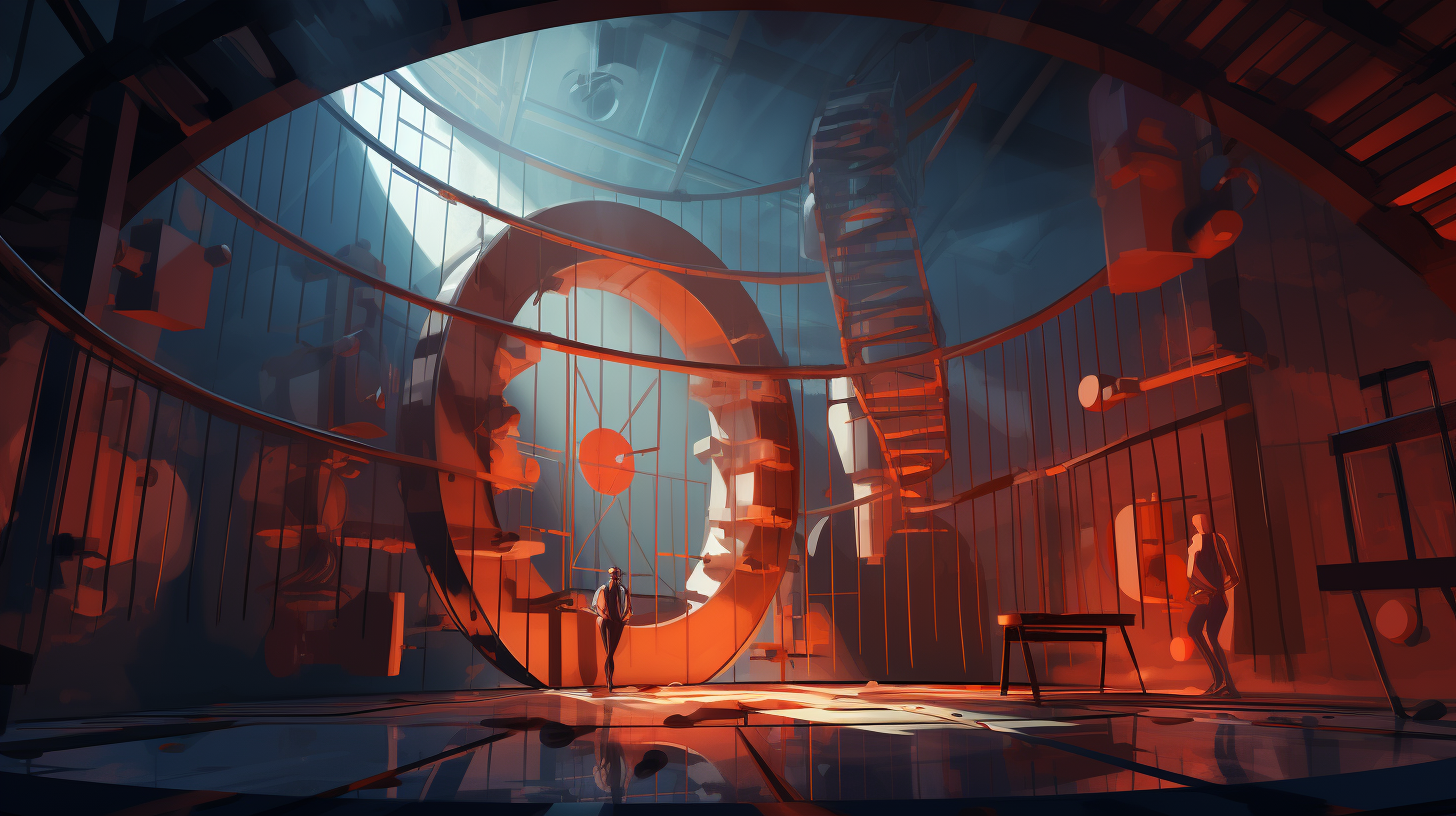
Image Source: Generated by Wujie AI
You are responsible for typing, and we are responsible for helping you generate videos. This is a video generation tool for every ordinary person.
Do you still remember the visual illusion created by dream designer Ellen Page in "Inception" by moving the mirror?

Video is at the core of entertainment, and everyone wants to be a dream director like that, but so far, the process of making high-quality videos is still very complex and requires a lot of resources.
Last winter, several computer science PhDs from Stanford University attempted to use generative AI to make a movie and believed they had a chance to win the first "AI Film Festival" award.
Unexpectedly, despite the tremendous effort put into professional tools such as Runway and Photoshop, these highly skilled doctors still fell short.
Why can't there be a video generation tool tailored for non-creative professionals, allowing ordinary "laymen" to easily create and become the directors of their own stories?
Soon, a video generation tool called Pika quickly spread online. Since then, approximately 500,000 people have tried the software, generating millions of new videos every week.
Today, the "internet celebrity" Pika has reached a milestone — Pika 1.0 is officially launched.
This is a major product upgrade, including a new AI model that can generate and edit various styles of videos, such as 3D animation, cartoons, and movies. It is also easier to use.
Let's take a look at what surprises Pika 1.0, backed by hundreds of GPUs, can bring us.

In Pika 1.0, very close and vivid videos can be generated through text. Not only that, using images, and even videos, they can be "reprocessed." The styles are diverse, and it's up to you to choose.
In the eyes of some netizens, the coolest thing about it is that it allows you to upload your own video clips and use generative AI to edit and reimagine scenes. "This alone makes it one of the most useful AI video tools."
In addition, the new model can also provide more refined editing and control of the generated content — adjusting the aspect ratio and perspective of the video, changing clothes, adding or removing items (such as putting sunglasses on a robot), are all within reach.

User X @bee_avatar immediately went to experience Pika 1.0 after its release and created the cute little black rabbit below. The user said the production process was very fast, and those who experience it will understand.

It seems that the new version "completely changes the rules of the game."
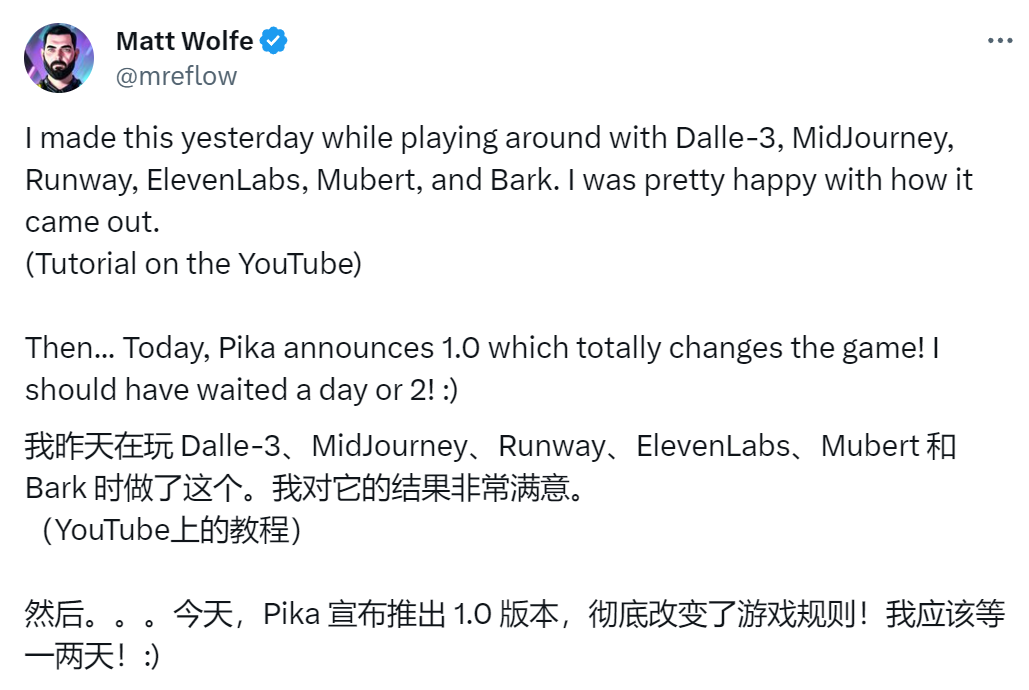
Many netizens have already found the original videos they made and want to see if there will be more miracles using Pika 1.0. However, most people are eagerly waiting on the waiting list. The Pika official has responded that they will definitely allow everyone to use the new product smoothly.

The general layout of the Pika 1.0 webpage is as follows. If you want to familiarize yourself with it as soon as possible, you might as well watch the video below first.
, Duration 00:12
Pika 1.0 is a product launched by the startup company pika_labs. Currently, pika_labs has raised $55 million, and its investors include industry leaders and AI experts such as Adam D’angelo (founder and CEO of Quora), Andrej Karpathy, and Clem Delangue (co-founder and CEO of Hugging Face).
According to Forbes, pika_labs is currently valued between $200 million and $300 million.
Demi Guo, co-founder and CEO of pika_labs, is a computer science doctoral student at Stanford University, with Ron Fedkiw and Chris Manning as her collaborative mentors, dedicated to the cross-research of NLP and graphics.
Demi Guo attended Harvard University for her undergraduate and master's degrees and has been interested in poetry and creative writing since childhood.
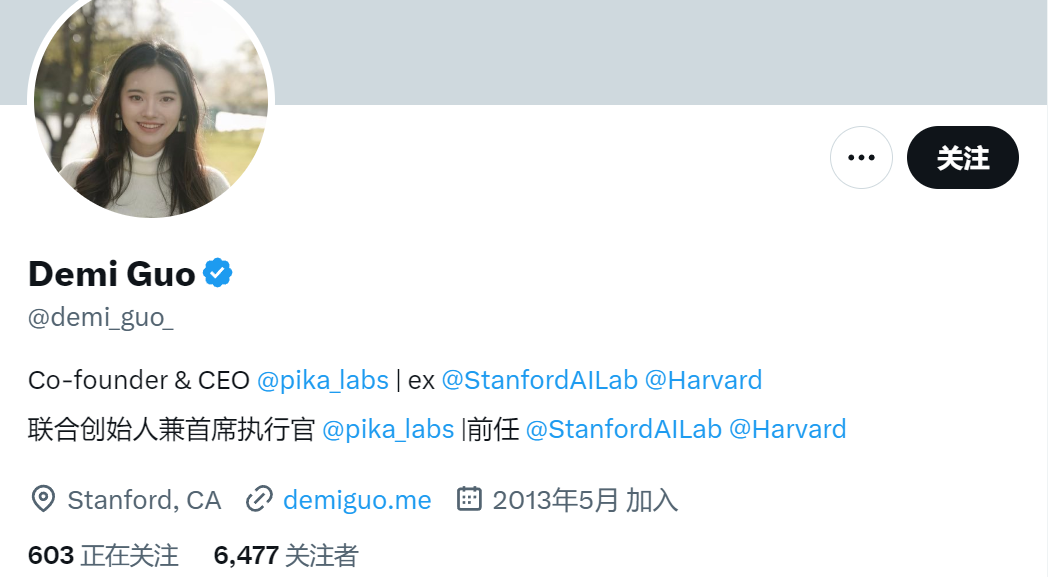
Co-founder and CTO Chenlin Meng of pika_labs is a computer science doctoral student at Stanford University, very interested in the extensive application of generative AI, with Stefano Ermon as his mentor.
Chenlin Meng also attended Stanford University for his undergraduate and master's degrees and dreams of becoming an animator.
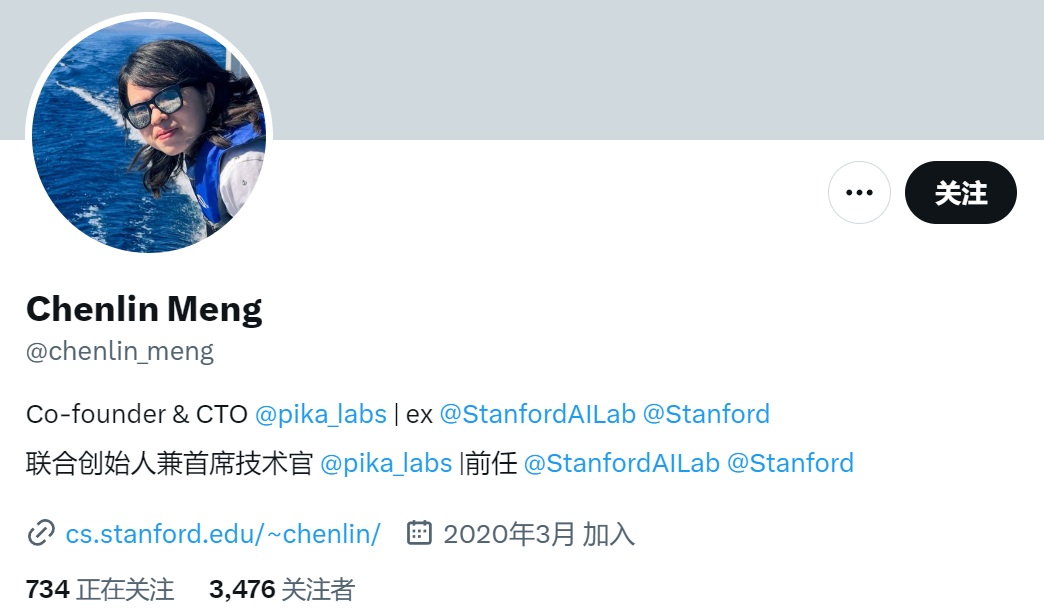
Israeli TVC director Matan Cohen-Grumi is the founding creative director of this startup company.
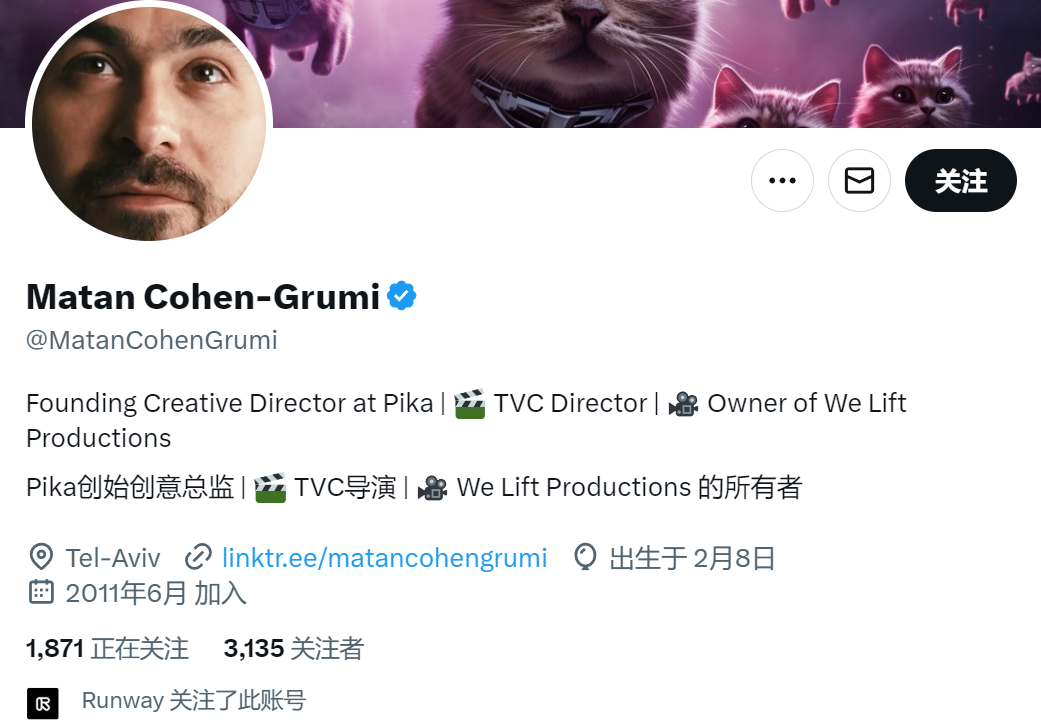
The "defeat" at the first "AI Film Festival" sparked the idea of entrepreneurship for them. In April of this year, Demi Guo and Chenlin Meng dropped out of Stanford University to start a business, wanting to create a more user-friendly artificial intelligence video generator.
"Our vision for Pika is to allow everyone to become the director of their own story and to inspire the creativity in each of us," the company wrote on its official blog.
Unlike powerful competitors in this field (such as Adobe and Runaway), "we are not trying to create products for film production," CEO Guo said in an interview with Forbes. "We are trying to do more for everyday consumers — people like me and Meng, who are essentially creators but not so professional."
Currently, the company's academic advisors at Stanford University and Harvard University include Chris Manning, Ron Fedkiw, Stefano Ermon, and Alexander Rush.
After the official launch of Pika 1.0, it immediately received support from some well-known scholars.

Andrej Karpathy (also an investor in the company) believes that this project is "my favorite place to follow the progress in the AI video field."
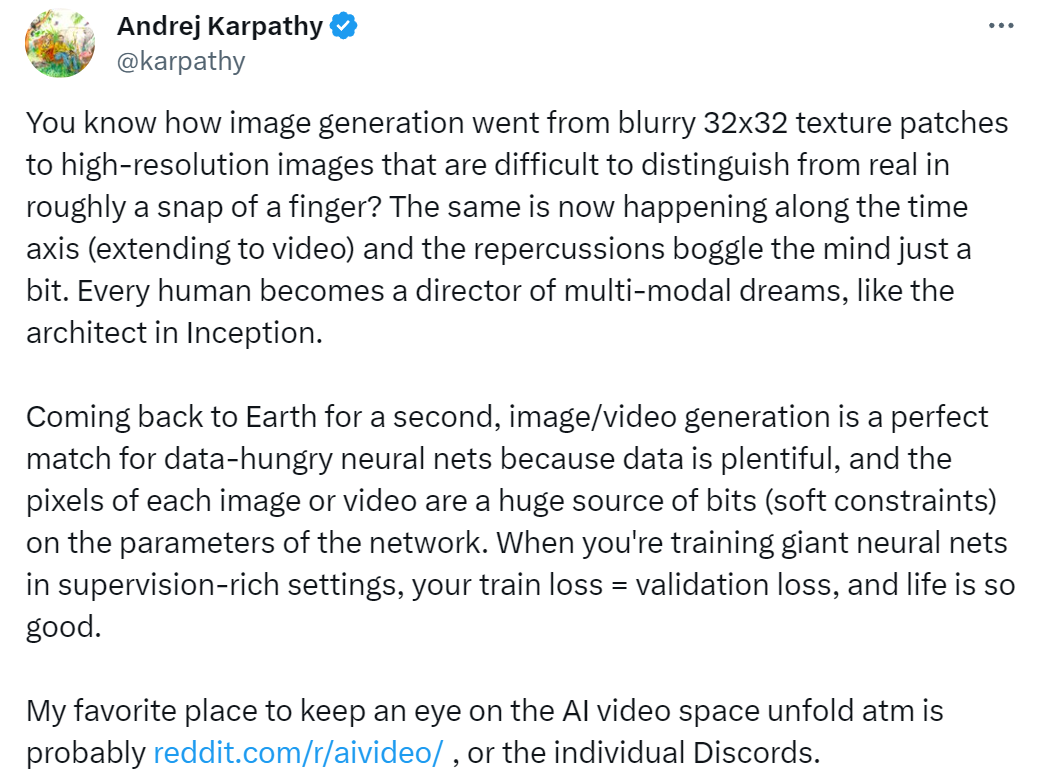

At the same time as the release of Pika 1.0, the company is also working on modifying algorithms to further improve the model and developing a model for filtering copyrighted materials.
If you also want to give it a try, here is the link: https://pika.art. Join the Pika 1.0 waiting list.
Reference links:
免责声明:本文章仅代表作者个人观点,不代表本平台的立场和观点。本文章仅供信息分享,不构成对任何人的任何投资建议。用户与作者之间的任何争议,与本平台无关。如网页中刊载的文章或图片涉及侵权,请提供相关的权利证明和身份证明发送邮件到support@aicoin.com,本平台相关工作人员将会进行核查。




